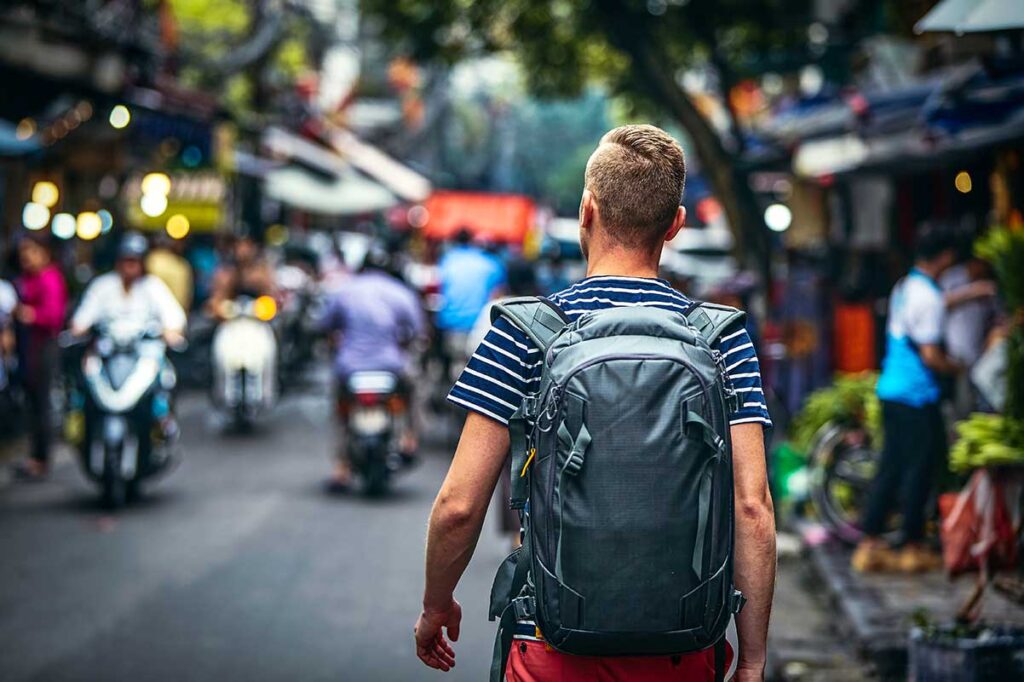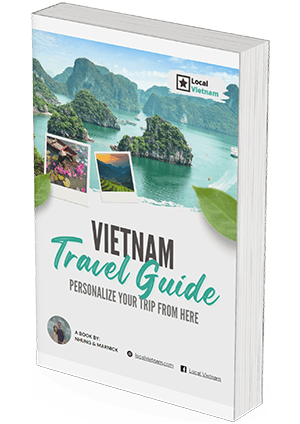Extending your Vietnam visa
If you have a tourist e-visa – or entered Vietnam through visa-free entry, let’s get straight to the point: extending your Vietnam visa is in most cases not possible. Once your visa expires, you are required to leave Vietnam.
However, there are a few exceptions and creative workarounds that travelers often use, which we will explain in detail throughout this article.
Tip for applying for your e-visa!
If you’re reading this and are not yet in Vietnam, here’s a valuable tip to avoid running into problems later:
A Vietnam e-visa is valid for a maximum of 90 days, but you won’t automatically get 90 days. The validity is based on the number of days you specify when applying. For example, if you request only 7 days, your visa will only cover 7 days, even though you could have requested more.
Play it safe:
- You can let your e-visa start earlier than your planned arrival date and end later than your expected departure date.
- As long as you enter Vietnam after the start date and leave before the end date, there’s no problem.
This approach gives you flexibility. If your plans change, or you need to stay longer than originally planned, you’ll be covered without needing to leave early or stress about extensions.
Exceptions allowed to extend visa
In most cases, extending your Vietnam visa is not possible, but there are exceptions where authorities allow you to stay longer. These situations are typically tied to emergencies or unexpected events:
1. Medical emergencies
If you experience a medical emergency that prevents you from leaving Vietnam, you can apply for a visa extension. Examples include hospitalization, illness, or recovery time that exceeds your original visa validity.
2. Lost or stolen travel documents
If you lose your passport while in Vietnam and need to get an emergency passport from your embassy, you may need additional time to arrange your departure. In this case, you can request a visa extension to remain in Vietnam legally until the issue is resolved.
What to do:
- Visit the Vietnamese Immigration Department as soon as possible to apply for an extension.
- Bring supporting documents that prove your situation:
- For medical emergencies: hospital records, doctor’s statements, or other medical paperwork.
- For lost travel documents: confirmation of your lost passport and proof of a new passport application from your embassy.
Get help from a visa agent
Navigating visa extensions on your own can be complex, especially in stressful situations. Visa agents can assist with the process, ensuring you have the correct paperwork and submitting your application on your behalf. This can save you time and increase your chances of approval.
Visa run: going out of Vietnam & reentering with a new visa
A popular workaround for travelers and expats who want to stay longer in Vietnam is the visa run. This involves leaving Vietnam before your current visa expires and re-entering with a new visa. While this method is entirely legal, there are some important things to know.
The challenge: Applying for a new e-visa
One limitation of the e-visa system is that you cannot apply for a new e-visa while still in Vietnam. If you try, you’ll get an error message stating that an e-visa can only be applied for when you are outside of Vietnam.
This leaves you with two options:
Option 1: Leave Vietnam and apply for a new e-visa
- Travel to a nearby country (such as Thailand, Cambodia, or Laos).
- Apply for a new e-visa from there. The processing time is usually 3-5 working days, so you can use this time to enjoy a short holiday before re-entering Vietnam.
This option is ideal for travelers who want to explore more of the region while waiting for their new visa.
Option 2: Use a visa agent for a visa run
If you prefer not to handle the process yourself, you can use a visa agent to organize your visa run. Here’s how it works:
- Visa agents can apply for a new visa on your behalf, even while you are still in Vietnam. This saves you the hassle of leaving the country to apply for a new visa yourself.
- Many agents also offer organized visa run services. These are buses that take travelers to the nearest border crossing (such as Cambodia or Laos), where you exit Vietnam, get a new visa, and re-enter the country—all in the same trip.
Why expats love this option:
Organized visa runs are often quicker and more convenient, especially for expats or travelers who need to extend their stay without much disruption. Many of these services run on a weekly basis and include everything you need for a smooth visa renewal process.
Overstaying your visa validity
While overstaying your visa in Vietnam is not recommended, it does happen. If you find yourself in this situation, it’s important to understand the consequences and what steps to take.
Fines for overstaying
If you overstay your visa, you will be required to pay a fine for each day you remain in Vietnam illegally. The standard fine is approximately 250,000 VND (about $10 USD) per day.
Example:
- Overstaying by 5 days = 1,250,000 VND (~$50 USD).
Is it a big deal to overstay?
- Short overstays: If you overstay by just a few days or even a week, there’s usually no serious issue beyond paying the fine. You will not be blacklisted or banned from re-entering Vietnam.
- Long overstays: If you stay weeks or months past your visa expiration, the consequences can be more severe. This could include:
- Higher fines
- Being temporarily or permanently banned from re-entering Vietnam
- Additional delays and scrutiny during future visa applications
What to do if you’ve overstayed?
- Go to the immigration office: If you realize you’ve overstayed, visit the nearest Vietnamese Immigration Department as soon as possible to report the situation and pay your fine.
- Get assistance from a visa agent: If you’re unsure how to handle the process, a visa agent can help you negotiate with immigration officials and resolve the overstay issue.
Important: While paying a fine may seem like an easy solution, intentionally overstaying your visa can cause unnecessary stress and risks. Always plan ahead to avoid this situation and consider options like visa runs or reapplying for a new visa before your current one expires.
Getting a different type of visa
For most travelers, extending their stay in Vietnam isn’t possible, especially if they are visiting on a tourist e-visa or through visa-free entry. However, there are cases where you can apply for a different type of visa that allows for a longer stay.
1. Marriage-related visa (TRC)
If you get married to a Vietnamese citizen while in Vietnam, you may be eligible for a Temporary Residence Card (TRC). A TRC allows you to stay in Vietnam for an extended period—up to 3 years—without needing to exit and re-enter the country.
- The application process requires proof of marriage, such as your marriage certificate and other supporting documents.
- For the TRC, you will need to visit the Vietnamese Immigration Department or work with a visa agent to guide you through the process.
2. Work-related visas
If you plan to work in Vietnam, you can apply for a work visa or business visa. These visas are not something you can apply for yourself. Instead, the company or organization hiring you must sponsor the visa application and handle the paperwork on your behalf.
Key points about work visas:
- You must have a valid job offer from a registered company in Vietnam.
- Your employer is responsible for applying for your visa and ensuring you meet all requirements.
- A work visa typically allows for a longer stay, depending on the employment contract.
Who does this apply to?
For most tourists, these options won’t be relevant unless your circumstances change during your stay—such as receiving a job offer or marrying a Vietnamese citizen. If you think you might qualify, it’s best to consult an experienced visa agent or the immigration office for guidance.



